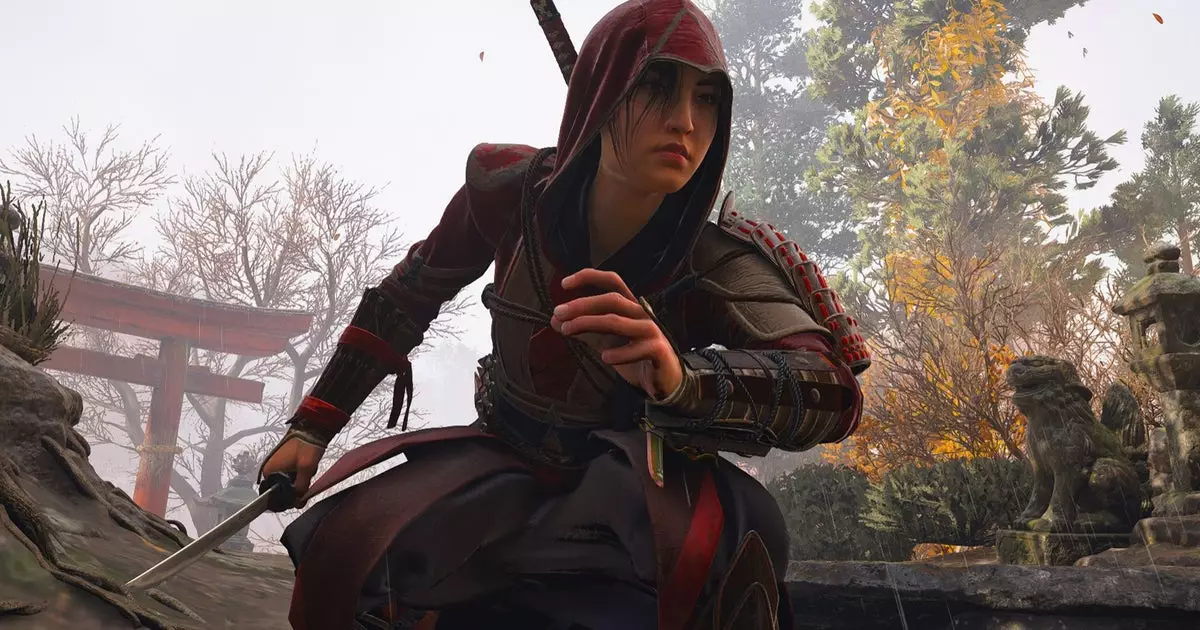Ubisoft, the storied stalwart of the video game industry, finds itself navigating tumultuous waters once more. Following the launch of its latest entry in the Assassin’s Creed franchise, titled “Assassin’s Creed Shadows,” the company is adjusting its trajectory, pushing back the release of multiple major projects. CEO Yves Guillemot has acknowledged that while Shadows has reinforced the brand’s strength and garnered an enthusiastic response from its audience, the company’s setbacks over the past year cannot be overlooked. With Ubisoft facing fierce competition and internal shifts, the landscape of what fans can expect has dramatically altered.
The company aims to cut costs by a staggering €100 million, a move indicative of the turbulent times in which they operate. Despite the critical acclaim Shadows received upon its release, Guillemot candidly stated that the financial outcome of the past year has been “slightly below objective.” Such transparency sheds light on a broader issue within the gaming industry: even the giants can stumble when market forces become unpredictable.
The Cost of Change: Restructuring and Redundancies
Ubisoft has not shied away from tough decisions in its pursuit of stability. Reports reveal that they have reduced their workforce by approximately 3,000 employees since September 2022. This drastic measure raises concerns around the health of the company in the long-term. While Guillemot emphasized the “discipline” evident across the organization, it is essential to question whether such severe cutbacks are fostering a sustainable work environment or simply a temporary fix to deeper structural issues.
Indeed, Ubisoft’s focus on discipline may also reflect a desire to stabilize an often volatile industry. The decision to delay significant titles, including Assassin’s Creed Shadows, highlights a strategic pivot towards prioritizing quality over speed. In an era where player expectations continually rise, delivering well-crafted games becomes paramount.
New Ventures and Strategic Partnerships
One of the notable outcomes of Ubisoft’s recent challenges is the partnership with Tencent, which is set to spearhead the establishment of a new subsidiary designed to focus on its most lucrative titles, such as Assassin’s Creed, Far Cry, and Rainbow Six. The collaboration represents a forward-thinking approach amidst financial strain, promising innovative leaps and improved market positioning. However, it remains to be seen how effectively this new organization will behave in a competitive marketplace.
Guillemot’s assertion that future development timelines will allow for “significant content coming from our largest brands” underscores a renewed commitment to both quality and quantity. This indicates a clear acknowledgment of past pitfalls in planning and execution. Yet, as the gaming community eagerly anticipates further releases, the pressure to deliver on promises will undeniably intensify.
Balancing Narrative and Multiplayer Experiences
Within this strategic pivot, Ubisoft emphasizes a dual approach: enriching both narrative-driven solo experiences and multiplayer offerings. The company aims to cater to varied player preferences, advocating that they can produce engrossing single-player journeys alongside engaging live-service components. Admittedly, this balance represents a challenging feat. Many players feel that the push towards “Games as a Service” (GaaS) models has sometimes diluted the quality of narrative experiences. Critics are left pondering whether Ubisoft can walk the fine line of satisfying both camps without compromising the essence of their beloved franchises.
Given recent shifts, it is essential for Ubisoft to re-evaluate not only their approach to game releases but also to ensure that their creative teams feel empowered and inspired. Prioritizing talent and creativity over financial metrics could fuel a renaissance for the company, allowing them to craft extraordinary titles that resonate with fans.
Overall, Ubisoft’s journey is reflective of the broader challenges facing the gaming industry as it evolves rapidly. By confronting their internal struggles and adapting to market dynamics, the company may very well be on the brink of a transformative era. The balance of maintaining high creative standards while executing sound business strategies will ultimately dictate their success moving forward. Whether Ubisoft can achieve this delicate equilibrium remains to be seen, but their future initiatives certainly warrant a keen eye from industry observers and dedicated gamers alike.

